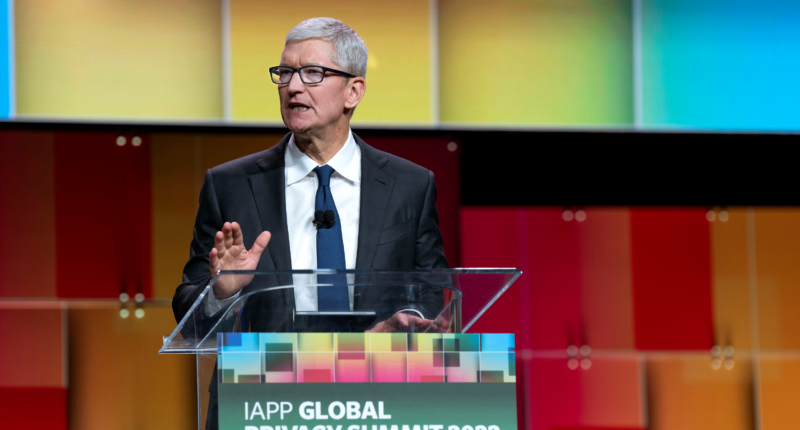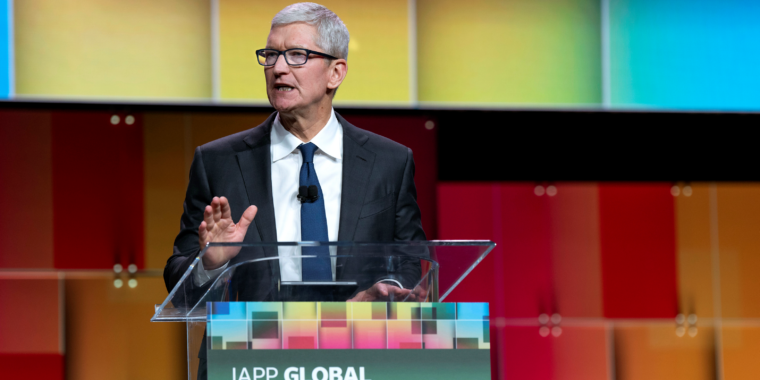
Apple
Apple CEO Tim Cook took the stage at the annual International Association of Privacy Professionals (IAPP) conference on Tuesday to discuss privacy, security, ad tracking and sideloading.
Calling privacy “one of the most vital battles of our time,” Cook criticized companies that make money from collecting large user data by comparing them to real-life stalkers.
In contrast, he claimed that Apple is “committed to protecting people from a data industrial complex built on surveillance”. To loud applause from the audience of privacy professionals, he expressed his support for US privacy rules similar to those of recent years in Europe.
On the other hand, he said he and Apple are “deeply concerned about regulations that would undermine privacy and security to serve another purpose,” such as protecting competition.
Apple CEO Tim Cook speaks at IAPP 2022
While he didn’t specifically mention them, he was probably referring to the European Union’s Digital Markets Act and the United States’ Open App Markets Act, which incorporate language about forcing platform holders like Apple to allow sideloading.
The current version of the Digital Markets Act no longer includes a sideloading requirement, but is still unfinished. The Open App Markets Act still has a sideloading requirement; the Senate Judiciary Committee recently approved it, but it has not yet been brought up in Congress.
On new regulations like this one, Cook said:
That means data-hungry companies can get around our privacy rules and again track our users against their will. It could also potentially give attackers a way to bypass the extensive security measures we’ve put in place, putting them in direct contact with our users, and we’ve already seen the vulnerabilities emerging on other companies’ devices.
He cited a notable example to support this point: Android users sideloading seemingly legitimate COVID-19 tracking apps, thus infecting their phones with ransomware.
“If we are forced to allow unscreened apps on the iPhone, the unintended consequences will be profound,” Cook said. “And when we see that, we feel an obligation to speak out — and ask policymakers to work with us to achieve goals we truly share, without undermining privacy.”
A key part of his argument is that sideloading could become so common that important apps can only be installed through that method, rather than through the App Store, which Cook says is more secure. If that happens, Cook argues, the idea of giving users a choice will disappear, as they could feel the pressure to sideload apps, exposing them to malicious actors.
Cook also tried to reassure listeners that “Apple believes in competition.” However, he offered no alternative solutions to those concerned that Apple’s control of the App Store would allow it to charge app developers exorbitant fees or subject developers to erratic or unfair rules.
Cook’s speech wasn’t the first time an Apple executive took the stage at a major conference to argue that new regulations designed to ensure continued competition could undermine user security and privacy. Craig Federighi gave a similar speech at Web Summit 2021.

